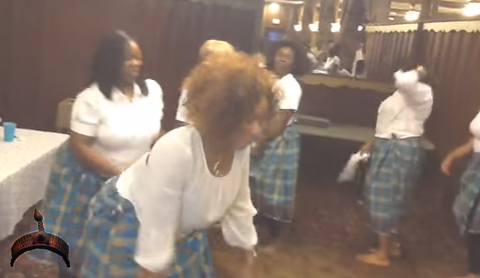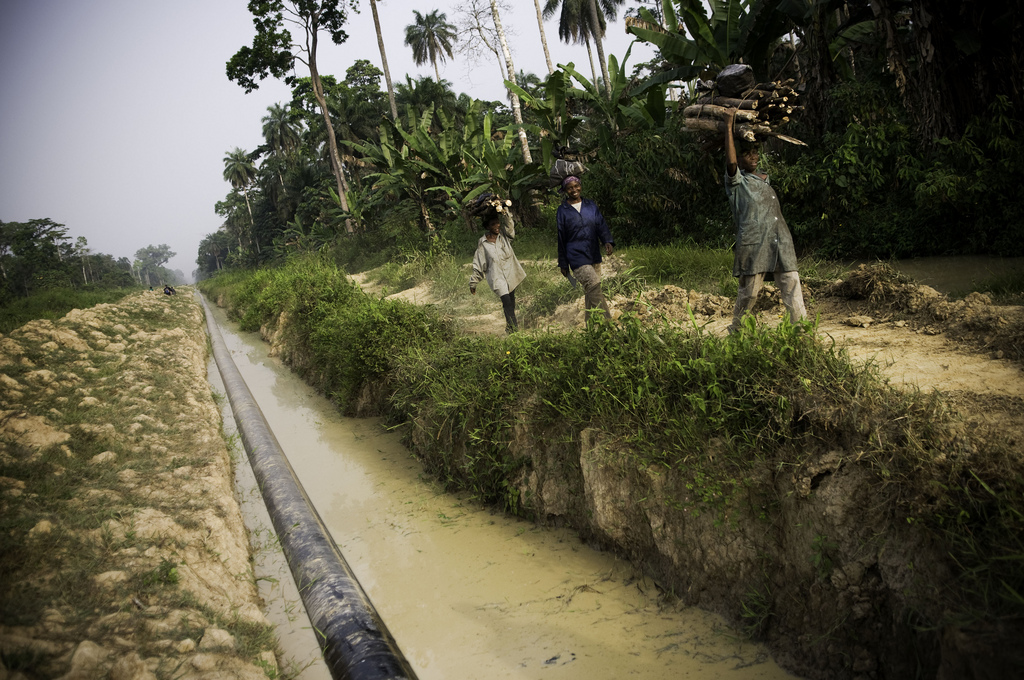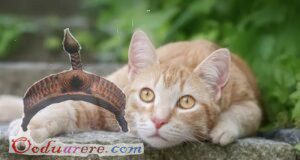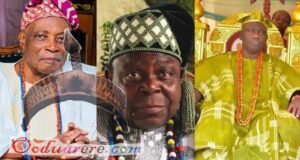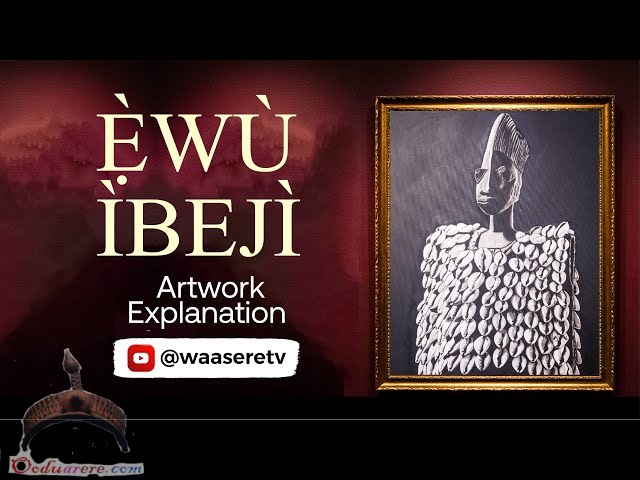Abua is a Kingdom in Rivers State, Nigeria. It is located 10 miles from Port Harcourt.
MAP OF ABUA
Alternate Names – Abuan
Abua People & Their Culture
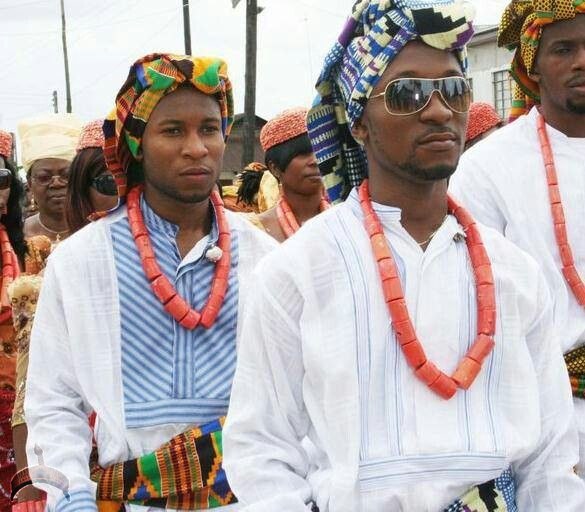
Abua people in their native cloth and beads
In the oral convention, legend has it that the originator of Abua had four children, in particular:
Ọtapha the ọkpana or first conceived male, Ẹmughan, Okpeden and a fourth who stayed with his folks and whose name got overshadowed in the mists of his dad’s impact.
That child was the one whose line in the long run fathered Ẹgiọm and Ogide the traditional leaders of Abua.
With a specific end goal to secure the region in those days of intertribal wars for regional cases, the eldest child, Ọtapha, was deliberately sent toward the southeastern outskirts where the salt waters of the Sombriro Sea meet the place that is known for Abua. Ọtapha’s area served as a vital sentry station.
Abua indegiens fought numerous wars in those days particularly with Nembe people ; so it was vital that trespassers be effectively located and emissaries rapidly sent to the inside for fortifications. Esidia Ogudu, for instance, was the starting and return port for many of those wars.
The most youthful child, Okpeden was then positioned toward the southwest of his senior sibling both to watch out for any incautions from over the Ọrashi River and in addition keeping up a connection to his senior sibling, Ọtapha.
The northwestern section of the territory
was doled out to Ẹmughan so that he and his kids would have enough ranch grounds and go about as a guarded against advances from Ẹkpẹ tribes men from that division.
With this safe set-up put in place, Abua as the zone and individuals are known started creating as a general public using their regular assets, gifts and relationship on each other to make a way of life, a society. In Abua, life is woven around family, faction and group, societal mores which include:
•Marriage
•Medicine
•Religion
•Cultural groups
•Entertainment
•Politics
• Farming
Marriage
Relational unions for the youthful were normally organized by the guardians orparents. The mother of a youthful child is as a rule watchful for a decent family with a youthful little girl. In this procedure excellence is typically not the main thrust in the choice, rather industry and genuineness with respect to the guardians together with fertility of the potential lady of the hour’s mom are major
criteria.
This seems to take after from a basic comprehension among the general population that if a thing looks, strolls and quacks like a duck, it most likely should be a duck. At the point when a reasonable prospect is found, the spouse passes the info to her significant other who on a selected date conveys meeting wines to the father of the lady of the hour to-be. In the event that the interest is mutual,
the wines are probably acknowledged and the word is passed on to the senior citizens of the more distant family.
Taking after consultations a future date is set for general society wedding service.
An Abua wedding function is a great profound and passionate experience, the meeting up – solidarity of two families not only two persons and a guarantee to help the youthful union work notwithstanding the many known difficulties in living.
For adults the way toward getting hitched is marginally distinctive in that it’s increasingly a two-man determination procedure to the degree that two grown-ups agree to a union in the trust of satisfaction of their common needs. Past this distinction all else continues as before. One right for the spouse, however, in a marriage as per Abua societal mores is that he could wed more than one wife chiefly with the assent of the primary wife for there to be rational soundness in the home. In those days when a man’s worth and impact were measured by the amount of yams in his ban, the quantity of youngsters he has, the quantity of residential animals he claimed and his capacity to communicate, it was officeholder on an aspiring Abua man to have a substantial family estimate. This without a doubt gave an extended work force.
For not just were the spouses and youngsters required in the family’s agrarian business, even his in-laws and companions turned out to be a piece of the work power, but, incidentally. at the proper time the man would send word to his in-laws and companions that his farm is fully ready for planting and the in-laws would all show up and the yam-sets would be arranged and planted. Support of the ranch was the proprietor’s business until harvest time when the word again goes out and the harvest is finished.
This procedure is a common undertaking between in-laws and companions. So toward the westernized African with small comprehension of his way of life, the term polygamy may appear to be evil particularly when wielded at Sunday school classes. Such a westernized African regularly cringes under the deriding comments, simply because he or she has overlooked the nuts and bolts of his/her way of life.
Polygamy as rehearsed in Abua was a financial framework that served the practitioners furthermore, groups they lived in. To outline the societal mores that advanced polygamy, I here utilize an individual case. My maternal granddad was hitched to six spouses. Is it accurate to say that he was simply inspecting females? In no way, shape or form. He was Uwema of the biggest town in Abua; he was very much regarded for brains and industry. He was a Customary Court Judge in those days of British rule.
Abua specially directed that granddad must have a successor (male) youngster to acquire his position when he passes on. In any case, his first spouse had two girls; so by understanding he wedded my fabulous mother who brought forth an only child, my mom. Granddad in this way needed to keep the journey alive; he wedded a third spouse whose first child was again a little girl. The energy had assembled steam so he hitched three more.
Obviously his star at long last sparkled all the more splendidly in the male field with the landing of three children took after by a few more girls. What’s more, you can wager, this was a teaming family for an adolescent to experience childhood in. Granddad taught us numerous abilities including thatch making.
This account is the story or part thereof of numerous Abua different spouse families. In any case, it should likewise be comprehended that not each Abua man could bear to be hitched not to mention being polygamous. What’s more, as the old Abua saying goes, “Ikaraph iba ikpẹ raala”.
•Medicine
The tale of the area of Abua looks somewhat like that of the land intermediary or real estate broker. They say there are three essential elements that impact the effective offer of a property in the Real Estate Business. These elements are:
1) Location!;
2) Location!!
furthermore,
3) Location!!!
Abua is hopefully situated inside the rain forest belt of West Africa as is normally rich in a bunch of restorative plants.
What’s more, as a result of this celestial gift, each fragment of Abua was noted for healers with top to bottom information of corrective herbs. This mindfulness empowered the experts of home grown pharmaceutical to mend all way of tropical ailments including bone fractures at low cost furthermore, at speeds that were a wonder toward the Western prepared restorative specialists.
For those of us who have confidence in perfect request and the bounteousness of the universe, this area of Abua and the attention to home grown pharmaceutical practice was not a mischance in perspective of the absence of different methods of social health-care in the territory.
Other than the healers there were prophets and diviners. So Abua had a notoriety for being a place that is known for marvel to their neighbors.
As in all aspects of life the herbs utilized for recuperating could likewise be abused by the narrow-minded or extremist in that tarde and some slid into that elusive slant of witchcraftcy with the ensuing unfailing undesirable results.
The all around educated healers were those that perceived the moral obligation and responsibility of every act of every person in this part of life particularly for those to whom more noteworthy mindfulness had been allowed.
Religion
Abua Holy Days
The Abua week is eight days in length with two heavenly days – Aakẹ Adighi Ogudu is the most sacred day and Aake Anyezi the less blessed one. On Aakẹ Adighi Ogudu, the area is not chipped away at, i.e., no cultivating action, not notwithstanding gathering is allowed. Other days of the week are: Ogudu, Obagh, Adule Aakẹ and Aakẹ Adighi Ogudu. Ogudu, Obagh, Adule Aakẹ Anyezi, Aakẹ Anyezi. Be that as it may, on Aakẹ Anyezi, harvesting if there should arise in case of need is permitted.
Along these lines with the invasion and acknowledgment of foreign religious practices the Abua people appears to observe many sacred days in the week. The characteristic Abua person sees no polarity between the seen and the concealed or otherworldly parts of life, that is, to him/her the ethereal and the material universes exist as a continuum or two sides of the same coin.
In this way God turns out to be exceptionally individual. God is personal to the point that each family, every town in Abua claims a subdivision of that all swarming, divine pith called Akẹ Abuan. Without a doubt, Akẹ Abuan is perceived by the adepts as the same Universal Essence enlivening all life whether in Abua or anyplace else on earth.
Along these lines in each valuable Abua ceremony, be it in the home or in the bigger group, Akẹ Abuan is summoned at the initiation to shower natural thoughts into the procedures so all would go well. On account of this attention to the heavenliness in all life as signs of the sacrosanct, Abua people had since quite a while ago saw shedding of human blood as a taboo, an unthinkable irrespective of the condition.
Appropriately, in the bizarre case that a homicide is committed, the nearby relatives of the killer would set up a goodbye diner for the killer late around evening time.
Furthermore, after he had eaten that dinner and had a beverage, the family senior would give the killer the dismal last advice, “legheri loor ana”.
Another subordinate of this magically guided lifestyle is the respect for the personal property of others. Abua individuals had a method for authorizing this.
A cheat or thief was really viewed as one who has lost his moorings, his psyche. What’s more, towns individuals overlook saying things to him/her, fairly it is the relatives of the hoodlum that are given a troublesome time since they appeared not to have tried to rectify their errant relative.
Abua culture or society is not only a cluster of “do nots”. The acknowledgment of the fortunate, defensive action of Akẹ Abuan drove the general population to give an “Akẹ Abuan” title on those upright and sage-like elderly men of the group. In like manner, elderly ladies of good notoriety and knowledge were enlisted formally into the “Uma’kẹ” (Goddess) positions.
These men and ladies turned into the foundations anticipating a solid impact of peace what’s more, strength in every group and Abua all in all.
Ẹghi ka Akẹ Abuan
An eminent yearly Abua social occasion early every year prior to the planting season is a visit to the Shrine of Akẹ Abuan. The place of worship is situated outside of Ọmalem off the Ahoada Abua street. The convocational parade used to be driven by the cleric of the Oracle
taken after by diviners or intuitives, prophets and senior citizens of Abua. This meeting was consultative in nature, looking for bearing and illumination over the span of exercises for the current year.
This consultative procedure was additionally done at the Shrine of Akẹ Ọtapha,
Akẹ Ẹmughan and Akẹ Okpeden. What’s more, those were the days when Abua worked as a
unit under awesome guidance.
http://nigeriafacts.net/Abua
http://www.ethnologue.com/
WIKIPEDIA
 Ọmọ Oòduà Naija Gist | News From Nigeria | Entertainment gist Nigeria|Networking|News.. Visit for Nigeria breaking news , Nigerian Movies , Naija music , Jobs In Nigeria , Naija News , Nollywood, Gist and more
Ọmọ Oòduà Naija Gist | News From Nigeria | Entertainment gist Nigeria|Networking|News.. Visit for Nigeria breaking news , Nigerian Movies , Naija music , Jobs In Nigeria , Naija News , Nollywood, Gist and more

